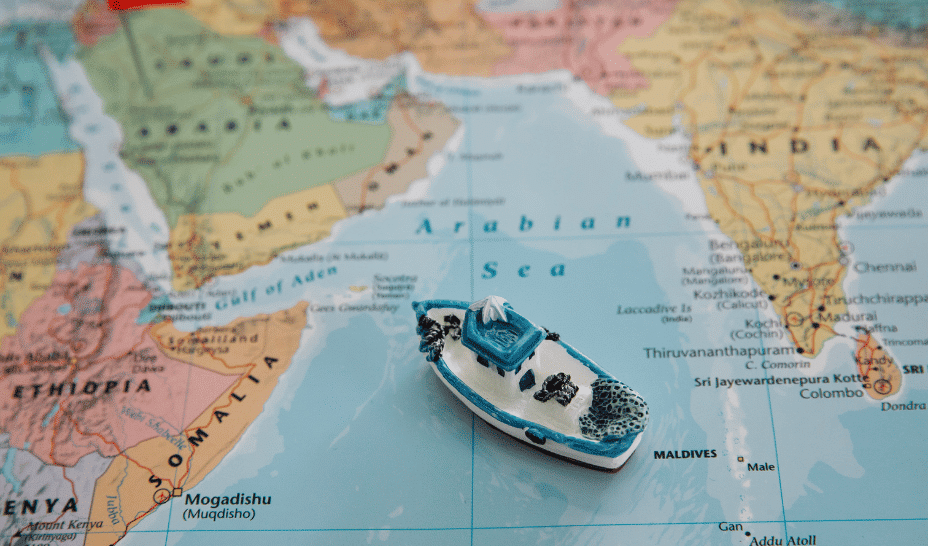AI in Travel
Everyone on board: 10 promising European startups navigating the future of travel

Fuelled by innovation in AI, sustainability, digital platforms, and consumer experience, Europe’s travel tech ecosystem continues to evolve rapidly! From personalised planning tools and smart booking engines to immersive experiences and integrated payments, startups across the continent are reimagining how we explore the world. The sector continues to attract fresh talent and significant investment, with founders tackling not just leisure travel but also mobility, accommodation, and alternative tourism models.
If you’re looking for a place to connect with the most forward-thinking minds in the industry, the FutureTravel Summit 2025 is just around the corner. Taking place on 30 October at the Antiga Fàbrica Estrella Damm in Barcelona, the summit will feature a curated programme of keynotes, panels, and a high-energy pitch competition. It’s a unique opportunity to gain insights into the sector’s momentum and meet the visionaries shaping the future of travel.
On that note, we have curated this list of 10 promising European travel tech startups, all founded from 2022 till today, that everyone should be keeping an eye on. These companies are building practical, scalable solutions that address real traveller needs, whether it’s simplifying bookings, modernising transport, enhancing experiences, or enabling new types of travel businesses. Let’s get right into it!
Arbio is a property management platform based in Berlin, focusing on short-term rentals and vacation apartments. It combines an AI-powered operating system with automation tools to manage pricing, bookings, and accounting. The platform supports direct bookings, distributes listings across OTAs, and provides owners with full transparency via a personalised dashboard.
Arbio currently manages over 700 apartments across 10 cities and helps property owners increase their revenue by optimising occupancy and pricing. The company also offers a flexible trial model and the option to sell or transfer rental portfolios. Founded in 2022, they have raised €25 million.
Arcube is a Passenger Intelligence Platform based in Manchester that helps airlines improve loyalty and generate ancillary revenue after a flight ends. The platform uses AI and data to allow passengers to convert unused miles into personalised ancillaries for future bookings. These offers are sent automatically post-flight and can include benefits like seat selection, baggage upgrades, or lounge access.
By reserving ancillaries for future use, passengers are encouraged to return to the same airline rather than switching to a competitor. The platform is compatible with major PSS and CRM systems and can be set up in under two months. Founded in 2022, they have secured over €1.2 million.
Drimer is a monetisation-focused platform based in Barcelona that allows travel content creators, agencies, and planners to sell fully bookable trips. The platform works as an online travel agency, integrating services like flights, accommodation, car rentals, and activities into a single interface. Drimer’s AI-powered tool lets users generate personalised itineraries in seconds, with options to customise branding and set commission margins.
Drimer handles key operational tasks such as payment processing and 24/7 customer support, allowing creators to focus on building and selling unique travel experiences. The platform is designed for speed, automation, and scalability, making it a practical solution for professionals and small agencies alike. Founded in 2022, they have raised €1 million.
HolaCamp is a Barcelona-based campsite operating company that manages and develops outdoor accommodation sites across Spain and Portugal. The company focuses on enhancing the value of traditionally owner-managed campgrounds through digitalisation, operational support, and investment. Their destinations include beachside, rural, and nature-integrated locations, offering a variety of glamping and camping experiences.
HolaCamp provides services such as site management, online booking, customer support, and marketing, and aims to modernise camping while keeping the natural experience central. With a growing portfolio of destinations and a strong focus on sustainability, the company continues to expand across Southern Europe. Founded in 2023, they have raised €31 million
Based in Paris, Kolet is a digital telecom startup offering eSIM services for travellers in over 190 destinations. With one eSIM for multiple trips, users can stay connected abroad without worrying about roaming fees, hidden charges, or swapping physical SIM cards. The app provides instant access to mobile data, easy installation guides, and the option to reuse leftover data as credit for future trips.
Kolet works with most smartphones and supports features like WhatsApp messaging and customer support via chat. The company targets modern travellers looking for flexibility, simplicity, and cost transparency while abroad. Founded in 2024, they have raised €15 million.
Layla AI is a Berlin-based AI-powered travel planning platform that helps users design and book personalised trips through a conversational interface. Travellers can ask Layla to build custom itineraries, find flights, discover hotels, and explore activities, all through natural language prompts. The platform integrates with providers like Booking.com, Skyscanner, and GetYourGuide to offer real-time recommendations and bookings.
Layla combines AI, short-form video content, and influencer insights to inspire and guide users. It is designed for solo travellers, couples, and families, supporting everything from weekend getaways to multi-city trips. Founded in 2022, they have raised €5 million.
Based in Sabadell, Nomade Nation designs, produces, and sells customised camper vans under the Neo and Neo S models. Their vehicles combine modern interior design, advanced technology, and home-like comfort to support independent travel. The vans are available for direct purchase and are also integrated into rental fleets through a network of partner operators.
The company offers a fully digital configurator, after-sales support, and options for both private buyers and fleet owners. In addition to new models, Nomade Nation also supports second-hand sales and promotes sustainable travel through its blog and customer resources. Founded in 2022, they have raised over €1.5 million.
Based in Denmark, Understory is a platform built for experience-based businesses to manage bookings, events, and day-to-day operations. It is used by tour operators, class instructors, accommodation providers, and other experience hosts to centralise bookings, simplify administration, and promote their offerings online. The platform includes features such as calendar management, performance dashboards, marketing tools, and guest communication, all in one interface.
Understory is designed to support a wide range of niches, from arts and crafts to food tastings and adventure tourism. It provides local customer support and facilitates collaboration among users through community events and partner promotions. Founded in 2023, they have raised €3.8 million.
Based in Milan, Weebora is a digital platform designed for padel fans looking to book travel experiences centred around the sport. Users can browse and reserve holiday packages, tournaments, and training camps in top destinations like Zanzibar, Madrid, and the Maldives. The service combines accommodation, transport, and coaching into curated travel bundles.
Weebora partners with certified instructors and padel academies to deliver high-quality experiences. The company also offers custom trip planning through its Package Design Form and manages all logistics, including bookings and payments. Founded in 2024, Weebora has raised €1.3 million.
Based in Stockholm, Wingbits provides a decentralised flight tracking network that offers real-time and historical ADS-B data for the aviation industry. The company collects and distributes high-quality flight data through a global community of contributors and encrypted ADS-B hardware. This data supports applications across sectors such as airports, defence, research, fleet operations, and government agencies.
Wingbits enables users to track flights, analyse trends, and generate insights through its customisable data services. It also incentivises contributors through a blockchain-based model, making data sharing more accessible and scalable. Founded in 2023, they have raised €7.7 million.
AI in Travel
Sabre Corporation’s Strategic Partnership with Christopherson Business Travel and Its Implications for Undervalued Cloud and AI Stocks

Sabre Corporation (NASDAQ: SABR) has long been a cornerstone of the global travel technology sector, but its recent strategic partnership with Christopherson Business Travel marks a pivotal evolution. By leveraging its AI-driven platform and cloud-native infrastructure, Sabre is not only modernizing corporate travel management but also positioning itself as a catalyst for growth in the undervalued travel tech sector. For investors, this collaboration offers a compelling case study in how AI and cloud innovation can unlock long-term value in a niche yet resilient market.
A Strategic Alliance for the Future of Corporate Travel
On July 17, 2025, Sabre announced a multi-year agreement to become Christopherson Business Travel’s primary technology partner. This partnership is more than a transactional arrangement—it’s a strategic alignment of two companies aiming to redefine corporate travel through automation, real-time data, and personalized service. Sabre’s AI-powered tools, including Sabre Red 360, Trip Proposal, and Market Intelligence, will streamline operations for Christopherson, enabling faster decision-making and enhanced client offerings.
The integration of Sabre’s cloud-native infrastructure into Christopherson’s proprietary Andavo platform is particularly noteworthy. This move allows for real-time orchestration of multi-source content (air, hotel, rail, ground) and seamless API-driven integrations, reducing manual effort and improving scalability. As Chad Maughan, CTO of Christopherson, noted, Sabre’s architecture provides the operational flexibility needed to adapt to evolving client demands—a critical advantage in the post-pandemic corporate travel landscape.
Sabre’s Financial Resilience and AI-Driven Growth
Sabre’s financial performance in 2024 underscores its transition from a turnaround story to a growth-oriented entity. Revenue increased to $3 billion, with adjusted EBITDA rising to $517 million—a 54% year-over-year improvement. While IT Solutions revenue dipped due to de-migrations, the Travel Solutions and Distribution segments grew by 4% and 6%, respectively, driven by demand for Sabre’s AI-powered tools.
The company’s market cap of $1.222 billion pales in comparison to AI/cloud giants like Databricks ($62 billion) or Snowflake ($43.6 billion), but this undervaluation reflects Sabre’s niche focus. Its strategic investments in Sabre Mosaic—a modular platform combining AI, cloud, and traditional agent workflows—position it to capture a larger share of the corporate travel market, which is projected to grow as businesses prioritize cost optimization and efficiency.
The AI/Cloud Travel Tech Opportunity
The broader travel tech sector is undergoing a transformation fueled by generative AI. According to Skift Research, AI-driven tools could create a $28 billion+ opportunity for the industry, with applications in personalized itineraries, dynamic pricing, and automated customer service. Sabre’s Automated Exchanges & Refunds and Agency Retailer solutions are already streamlining post-booking processes, reducing manual intervention by up to 70%.
However, Sabre is not alone in the race to monetize AI in travel. Competitors like C3.ai (NYSE: AI), Marvell Technology (NASDAQ: MRVL), and DigitalOcean (DOCN) are also leveraging cloud and AI to drive growth. C3.ai’s predictive analytics tools, for instance, have secured government contracts worth $450 million, while Marvell’s AI-optimized chips are powering data centers for hyperscale providers. Yet, Sabre’s deep vertical integration into travel-specific workflows gives it a unique edge in the corporate travel niche.
Why Sabre Is an Undervalued Investment
Despite its strategic advantages, Sabre remains overlooked by many investors. Its current price-to-earnings ratio (P/E) of 8.5 is significantly lower than the industry average of 18.5, and its hedge fund ownership (11.2%) suggests growing confidence in its AI-driven roadmap. The partnership with Christopherson is a validation of Sabre’s value proposition: it enables the company to scale its AI/Cloud offerings without overhauling existing systems, a critical factor for travel agencies seeking cost-effective modernization.
For investors, the key question is whether Sabre can replicate its success in other verticals. The company’s PowerSuite Cloud platform, which automates operations and integrates NDC content, is already gaining traction among mid-sized travel agencies. If Sabre can expand its footprint in the corporate and leisure travel markets, its revenue could outpace the 10% growth projected by analysts.
Conclusion: A Strategic Bet on AI-Driven Travel
Sabre’s partnership with Christopherson Business Travel is a microcosm of the broader shift toward AI and cloud-native solutions in travel technology. While the company may lack the valuation of tech giants like Microsoft or Google, its focus on vertical-specific innovation and operational efficiency makes it a compelling play for investors seeking exposure to the travel sector’s AI revolution.
For those considering a diversified portfolio, Sabre offers a unique blend of undervaluation and growth potential. However, it should be viewed as a complementary holding to broader AI/cloud stocks like C3.ai or Marvell, rather than a standalone bet. As the travel industry continues to embrace AI-driven automation, Sabre’s ability to deliver scalable, client-centric solutions will likely drive long-term value for both its partners and shareholders.
AI in Travel
Travel through time with AI robots

At the onging 2025 World Artificial Intelligence Conference held in Shanghai, a special WAIC Skills Stage was put on to recreate a scene as the contemporary AI robots working in a bustling Shanghai lane of 1980s to 90s. Click the video and find more.
AI in Travel
Discover Dublin, Ireland, with the New AI Tour Guide: A Digital Revolution in Urban Tourism

Saturday, July 26, 2025
With intelligent technology, the journey and exploration of rocky pathways in the busy city of Dublin has fully emerged into a novel experience. ‘Brendan,’ Dublin’s first AI-powered tour guide, provides tourists with a whole new way of seeing the city’s most famous landmarks. This new venture, developed by CityMe in collaboration with Dublin City Council, combines tech and travel. The project enables tourists to look at today’s high-tech attractions through the eyes of a computer-generated guide.
Introduction to Dublin’s First AI Tour Guide
The creation of Brendan, a virtual tour guide, was part of an initiative to enhance the visitor experience in Dublin. This artificial intelligence (AI) guide, developed by CityMe, an urban tourism company specializing in AI-powered audio guides, is now the newest addition to the city’s tourism offerings. While AI guides are already available in other cities like London, Paris, and Barcelona, Brendan represents a new milestone for Dublin. The app, which can be downloaded on mobile devices, serves as a gateway to more than 540 locations across Dublin. The guide’s role is to provide real-time narration using geolocation technology, delivering stories and historical insights as users stroll through the city’s vibrant neighborhoods.
The Role of Technology in Dublin Tourism
The app, part of Dublin’s Smart Dublin initiative, allows visitors to explore six distinct neighborhoods within the city, including Stoneybatter/Smithfield, The Liberties, City Centre North/O’Connell Street, Temple Bar, Stephen’s Green/Portobello, and Trinity College/Docklands. Each neighborhood features a dedicated tour introduction, offering options to explore significant locations in greater detail. As the app taps into AI audio technology, the guide provides a warm and locally informed storytelling style about each place, including iconic pubs, eateries, museums, galleries, and historical sites.
One of the most notable features of this AI guide is its use of cutting-edge geolocation capabilities, which allows it to offer relevant commentary based on the user’s exact location. Whether visitors are wandering through Dublin’s medieval streets, observing ancient monuments, or enjoying a lively pub atmosphere, Brendan’s voice will provide them with historical insights that are otherwise inaccessible to the average traveler.
Brendan’s Narration: A Blend of History and Hyperbole
As users engage with the app, they are welcomed by Brendan, who greets them with a friendly tone and introduces them to the rich history of Dublin. However, while his narration is designed to be engaging and informative, some users have noted that the AI guide’s delivery lacks the depth and nuance that a human tour guide would provide. The information presented is generally accurate but tends to focus more on general facts than on the intricate details of Dublin’s complex history.
For example, Brendan accurately introduces Dublin Castle as a symbol of British power, mentioning the historical significance of its handover to the Irish Provisional Government in 1922. However, the guide omits important details, such as the unsolved theft of the Irish Crown Jewels in 1907. In contrast, traditional human guides often dive into such fascinating but lesser-known aspects of Dublin’s past, adding depth and intrigue to the experience.
Similarly, when discussing the famous Temple Bar Pub, Brendan provides a thorough description of its transformation from a rough neighborhood to a bustling tourism hotspot. Yet, key historical facts are left out, such as the building’s status as a protected structure or its role in preserving the area from being turned into a bus station.
While the app succeeds in providing a brief overview of each site, the overall tone of Brendan’s narration has been described as repetitive and overly simplistic, with little room for the complexity and contradictions that define Dublin’s history.
The Pros and Cons of AI in Travel
The AI-driven CityMe app has garnered mixed responses from Dublin’s human tour guides, many of whom see it as a tool that complements, rather than competes with, their services. For independent travelers, the app offers a convenient and cost-effective alternative to traditional walking tours. It provides a simple way to explore Dublin at one’s own pace without the need to book a tour or interact with a guide. This is particularly appealing for solo travelers or those on a tight schedule who still want to experience the essence of the city.
However, while AI guides like Brendan have their benefits, they lack the human connection that many tourists seek when visiting a new city. Tourists often come to Dublin not just to learn about its history but to engage with local culture and interact with people who can offer personal insights and anecdotes that make a place come alive. Human guides can provide an emotional connection and share their own experiences, which is something that AI, for all its technical prowess, cannot replicate.
Moreover, the AI guide’s inability to provide personalized interactions or adapt its narrative based on the user’s specific interests can sometimes feel impersonal. In contrast, a human guide can tailor their storytelling to suit the audience’s preferences, providing a more fulfilling and engaging experience.
The Future of AI in Travel and Dublin’s Tourism
As Dublin continues to develop its Smart City initiatives, the integration of AI in tourism will likely grow. The CityMe app is a clear step forward in modernizing the city’s tourism infrastructure and offering visitors a new way to engage with its landmarks. It offers a fascinating glimpse into the future of travel, where AI-powered guides may become the norm rather than the exception.
That said, the app also highlights the limitations of relying on technology to replace human experiences. While Brendan’s knowledge is largely accurate and helpful, it is the human element that ultimately makes travel memorable. As tourists increasingly seek authentic experiences, the role of human guides in creating a connection with visitors will remain indispensable.
For now, the CityMe app provides an enjoyable and informative introduction to Dublin, particularly for those with limited time. It offers a new way to explore the city’s historical and cultural treasures, albeit without the depth and personal touch that a human guide can provide. As AI technology continues to evolve, future iterations may become more sophisticated, but it is unlikely that it will ever replace the emotional and personal connections forged through human interaction.
Conclusion: A Positive Step Forward for Dublin’s Tourism
Summing up, although Brendan the AI guide can never take the place of an experienced human tour guide, it is still an invaluable addition to the tools of those visitors going to Dublin. Whether you’re after a brief introduction to the city or something deeper and more akin to the CityMe app, it is a useful aide for any person in search of a digital partner to lead them through Dublin. However, there is still no substitute for the expertise, passion, and personal connection offered by Dublin’s human tour guides if you really want to make your trip informative and entertaining at the same time.
-

 Brand Stories5 days ago
Brand Stories5 days agoBloom Hotels: A Modern Vision of Hospitality Redefining Travel
-

 Brand Stories14 hours ago
Brand Stories14 hours agoCheQin.ai sets a new standard for hotel booking with its AI capabilities: empowering travellers to bargain, choose the best, and book with clarity.
-

 Destinations & Things To Do6 days ago
Destinations & Things To Do6 days agoUntouched Destinations: Stunning Hidden Gems You Must Visit
-

 AI in Travel6 days ago
AI in Travel6 days agoAI Travel Revolution: Must-Have Guide to the Best Experience
-

 Brand Stories3 weeks ago
Brand Stories3 weeks agoVoice AI Startup ElevenLabs Plans to Add Hubs Around the World
-

 Brand Stories2 weeks ago
Brand Stories2 weeks agoHow Elon Musk’s rogue Grok chatbot became a cautionary AI tale
-

 Asia Travel Pulse3 weeks ago
Asia Travel Pulse3 weeks agoLooking For Adventure In Asia? Here Are 7 Epic Destinations You Need To Experience At Least Once – Zee News
-

 Destinations & Things To Do11 hours ago
Destinations & Things To Do11 hours agoThis Hidden Beach in India Glows at Night-But Only in One Secret Season
-

 AI in Travel3 weeks ago
AI in Travel3 weeks ago‘Will AI take my job?’ A trip to a Beijing fortune-telling bar to see what lies ahead | China
-

 Brand Stories3 weeks ago
Brand Stories3 weeks agoChatGPT — the last of the great romantics









You must be logged in to post a comment Login